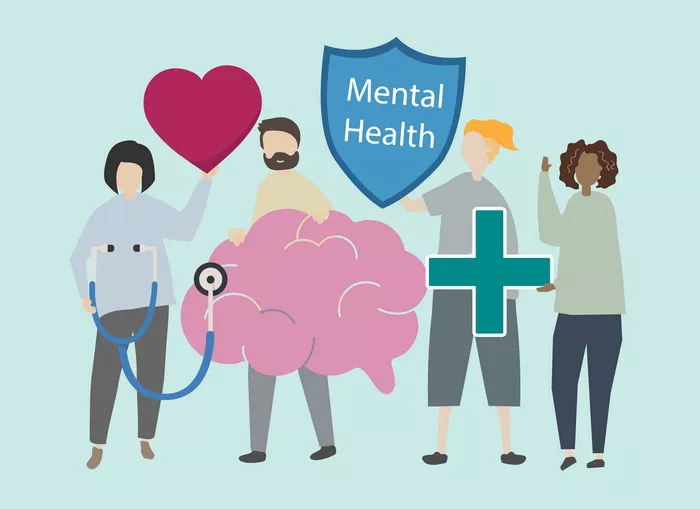In the pursuit of overall well-being, it’s crucial not to overlook the health of our minds. Mental hygiene, often referred to as psychological hygiene, encompasses the practices and habits that promote and maintain good mental health and well-being. Much like physical hygiene helps maintain physical health, mental hygiene focuses on nurturing and safeguarding the health of our minds. In this article, we explore the concept of mental hygiene, its importance, practical strategies, and the benefits it brings to our lives.
The Significance of Mental Hygiene
Maintaining good mental hygiene is essential for several reasons:
1. Prevention of Mental Health Problems:
Good mental hygiene practices can help prevent the onset of mental health problems such as anxiety disorders, depression, and substance abuse. By proactively managing stress and cultivating healthy coping mechanisms, individuals can reduce their risk of developing mental health issues.
2. Stress Management and Resilience:
Effective mental hygiene practices equip individuals with the tools to manage stress effectively and build resilience in the face of life’s challenges. By incorporating stress-relieving activities into their daily routines, individuals can buffer the impact of stressors and bounce back more easily from adversity.
3. Connection between Mental and Physical Health:
There is a close interplay between mental and physical health, with one influencing the other significantly. Prioritizing mental hygiene not only benefits mental well-being but also has positive effects on physical health. Conversely, neglecting mental health can contribute to the development or exacerbation of physical health problems.
Examples of Mental Hygiene Practices
Incorporating mental hygiene practices into daily life can significantly enhance overall well-being. Here are some examples:
1. Self-Care Activities:
Engaging in activities that bring joy, relaxation, and fulfillment is essential for maintaining good mental hygiene. Whether it’s pursuing hobbies, spending time in nature, indulging in creative pursuits, or simply taking time for oneself, self-care activities nurture the soul and replenish emotional reserves.
2. Stress Management Techniques:
Practicing stress management techniques such as meditation, deep breathing exercises, yoga, or progressive muscle relaxation can help alleviate stress and promote a sense of calm and inner peace. These techniques enable individuals to cultivate mindfulness and develop resilience in the face of adversity.
3. Healthy Lifestyle Habits:
Prioritizing regular physical activity, consuming a balanced diet, and ensuring adequate sleep are foundational aspects of mental hygiene. Physical health and mental health are intimately connected, and maintaining a healthy lifestyle supports overall well-being.
4. Building Healthy Relationships:
Positive social connections and supportive relationships are essential for mental well-being. Cultivating meaningful relationships, fostering open communication, and nurturing empathy and understanding contribute to a sense of belonging and emotional support.
5. Setting Boundaries:
Setting healthy boundaries in personal and professional relationships is crucial for protecting mental health and preserving emotional well-being. Boundaries help individuals assert their needs, maintain autonomy, and prevent burnout or resentment.
6. Limiting Exposure to Negativity:
Reducing exposure to negative influences such as toxic relationships, negative news, or social media overload is vital for mental hygiene. Creating boundaries around media consumption and surrounding oneself with positivity fosters a healthier mindset and emotional equilibrium.
7. Seeking Professional Help When Needed:
Recognizing when professional support is necessary and seeking therapy or counseling is an essential aspect of mental hygiene. Therapy provides a safe space to explore emotions, gain insight into patterns of thinking and behavior, and develop effective coping strategies.
Creating a Mental Hygiene Routine
Developing a personalized mental hygiene routine involves integrating various practices that resonate with individual needs and preferences. Here are some tips for creating a mental hygiene routine:
1. Identify Your Needs:
Reflect on your personal strengths, challenges, and areas of improvement to determine which mental hygiene practices are most relevant and beneficial for you.
2. Establish Consistent Habits:
Incorporate mental hygiene practices into your daily or weekly routine to ensure consistency and regularity. Consistent habits are key to reaping the long-term benefits of mental hygiene.
3. Be Flexible and Adaptive:
Be open to experimenting with different practices and adjusting your routine as needed. Flexibility and adaptability allow you to tailor your mental hygiene routine to evolving circumstances and changing needs.
4. Prioritize Self-Compassion:
Practice self-compassion and self-kindness as you navigate your mental hygiene journey. Be gentle with yourself, acknowledge your efforts, and celebrate progress, no matter how small.
5. Seek Support and Accountability:
Engage with supportive individuals who can encourage and motivate you in your mental hygiene endeavors. Accountability partners or support groups provide encouragement and accountability along the way.
6. Embrace Mindfulness and Reflection:
Incorporate mindfulness practices such as meditation, journaling, or gratitude exercises to cultivate self-awareness and introspection. Mindfulness enhances present-moment awareness and fosters a deeper connection with oneself.
Benefits of Good Mental Hygiene
Embracing good mental hygiene practices yields a multitude of benefits for overall well-being:
1. Improved Mood and Emotional Regulation:
Regular engagement in mental hygiene practices enhances mood stability and emotional resilience. Individuals develop greater emotional intelligence and regulation skills, leading to more balanced emotional responses.
2. Reduced Stress and Anxiety:
Effective stress management techniques mitigate the impact of stressors on mental and physical health. By fostering a sense of calm and relaxation, mental hygiene practices reduce anxiety levels and promote overall well-being.
3. Increased Resilience and Coping Skills:
Building resilience through mental hygiene practices equips individuals with the ability to navigate challenges and setbacks with greater ease and adaptability. Resilient individuals bounce back from adversity more quickly and emerge stronger from life’s trials.
4. Enhanced Self-Esteem and Confidence:
Engaging in self-care activities and nurturing positive self-talk fosters a sense of self-worth and confidence. Individuals develop greater self-awareness and self-acceptance, leading to enhanced self-esteem and a more positive self-image.
5. Improved Relationships and Social Connections:
Prioritizing healthy relationships and effective communication skills strengthens interpersonal connections and fosters a sense of belonging. Positive social interactions enrich life experiences and provide emotional support during difficult times.
6. Better Focus and Productivity:
Optimal mental hygiene promotes mental clarity, focus, and cognitive function. By reducing distractions and enhancing concentration, individuals experience increased productivity and efficiency in their daily tasks and endeavors.
7. Stronger Immune System and Overall Health:
Good mental hygiene practices have positive effects on physical health, including strengthening the immune system and reducing the risk of stress-related illnesses. A holistic approach to well-being supports overall health and vitality.
Conclusion: Nurturing Mental Well-Being
In conclusion, mental hygiene plays a pivotal role in maintaining good mental health and well-being. By incorporating various practices and habits into daily life, individuals can prevent mental health problems, manage stress effectively, and enhance overall quality of life. From self-care activities and stress management techniques to healthy lifestyle habits and seeking professional help when needed, mental hygiene encompasses a broad spectrum of practices tailored to individual needs. By prioritizing mental hygiene, individuals can cultivate resilience, emotional well-being, and a greater sense of fulfillment in life.
In the pursuit of overall well-being, it’s crucial not to overlook the health of our minds. Mental hygiene, often referred to as psychological hygiene, encompasses the practices and habits that promote and maintain good mental health and well-being. Much like physical hygiene helps maintain physical health, mental hygiene focuses on nurturing and safeguarding the health of our minds. In this article, we explore the concept of mental hygiene, its importance, practical strategies, and the benefits it brings to our lives.
[inline_related_posts title=”You Might Be Interested In” title_align=”left” style=”list” number=”6″ align=”none” ids=”6811,6762,6759″ by=”categories” orderby=”rand” order=”DESC” hide_thumb=”no” thumb_right=”no” views=”no” date=”yes” grid_columns=”2″ post_type=”” tax=””]



































